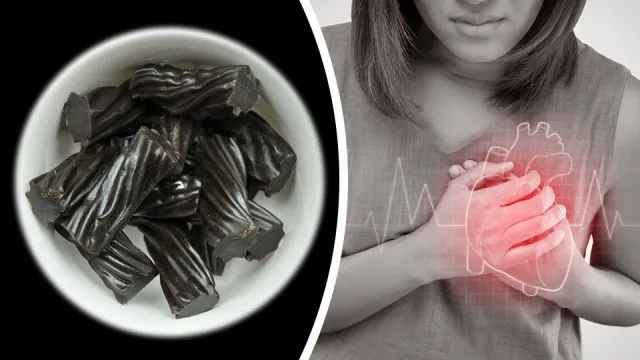
- Share on Facebook77
- Share on Pinterest
- Share on Twitter
On a day where things are typically spooky, you might want to avoid this candy to try and make it less so: black licorice. According to the Food and Drug Administration (FDA), the old-fashioned Halloween favorite can cause problems like irregular heart rhythm, especially in people over the age of 40.
The problem derives from a sweetening compound called glycyrrhizin, which creates a drop in potassium levels. With these low levels, some people might get high blood pressure, swelling and even heart failure.
That being said, your potassium levels will return to normal once you stop eating large amounts of the black licorice.
Here is a video from the FDA:
Even with this information, the reality is that some people still love to eat black licorice, so here are some tips that the FDA recommends.
- Fans who are 40 and older should limit their licorice intake to a maximum of two ounces, which equates to three 1-inch pieces a day.
- If you have been eating a lot of black licorice and have an irregular heart rhythm, stop eating and immediately call your healthcare provider.
- Black licorice can interact with many medications, herbs and other dietary supplements.
“People either love it or hate it and, as far as I can tell, it’s not a learned like or dislike,” says Marcia Pelchat, an associate member of the Monell Chemical Senses Center in Philadelphia. A major reason why people like the unique taste of black licorice stems from anethole, which is aromatic and plays on our olfactory senses.
The news has sparked some conversation on Twitter:
On behalf of children everywhere, black licorice, raisins, pennies and pencils are NOT acceptable hand outs.
You’re welcome in advance.
— Andrew Belleson (@ChicagoCubsPA) October 31, 2017
Black licorice is the devil’s work.
— Jen (@BrokeMyCoccyx) October 30, 2017
Finally they get something right: warning: Black Licorice Is Gross
— Dave Chang (@davidchang) October 31, 2017
Do you like black licorice? Will you be eating any this Halloween? Let us know!
— PJ Amirata
- Share on Facebook77
- Share on Pinterest
- Share on Twitter

